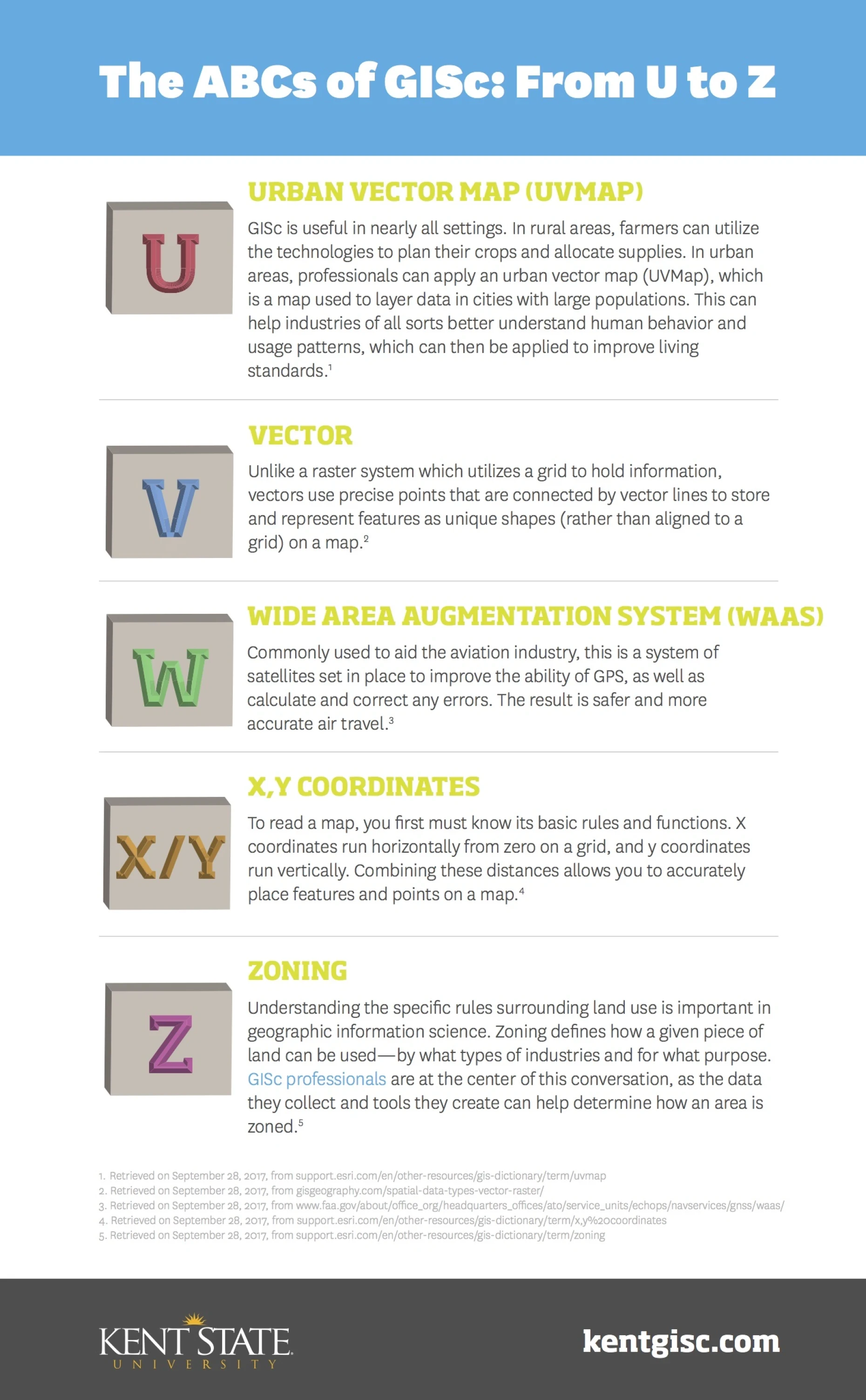A Journey through the Vocabulary of GISc
We typically view language as evolving at a glacial pace. Yet, consider the fact that the Merriam-Webster Dictionary added more than 1,000 new words in February 2017—and more than 2,000 in April 2016.1
So, what’s driving the meteoric evolution of language? It’s simple: innovation. It’s the biggest driver of change, affecting how we speak and act every day.
As we conclude this series on the language of geographic information science (GISc), think of the opportunities to expand our knowledge through continued invention. Those who master these terms and, in turn, apply them to the real world will have the chance to add more pages to the world’s dictionary.
Here’s the final chapter of our GISc glossary, covering terms from U to Z.
Now that the entire alphabet has been covered, the real fun can begin. As mentioned in the previous parts, this is only a small sample of GISc—a few pieces of the bigger puzzle. The definitions provided here can act as a launching pad for your GISc journey.
There’s so much to learn in GISc. If these posts really connected with you, it may be time to consider an online master’s degree in GISc. After all, it could be the first step to making your mark in the dictionary.
Sources:
- Retrieved on September 28, 2017, from businessinsider.com/new-words-merriam-webster-dictionary-2017-2





